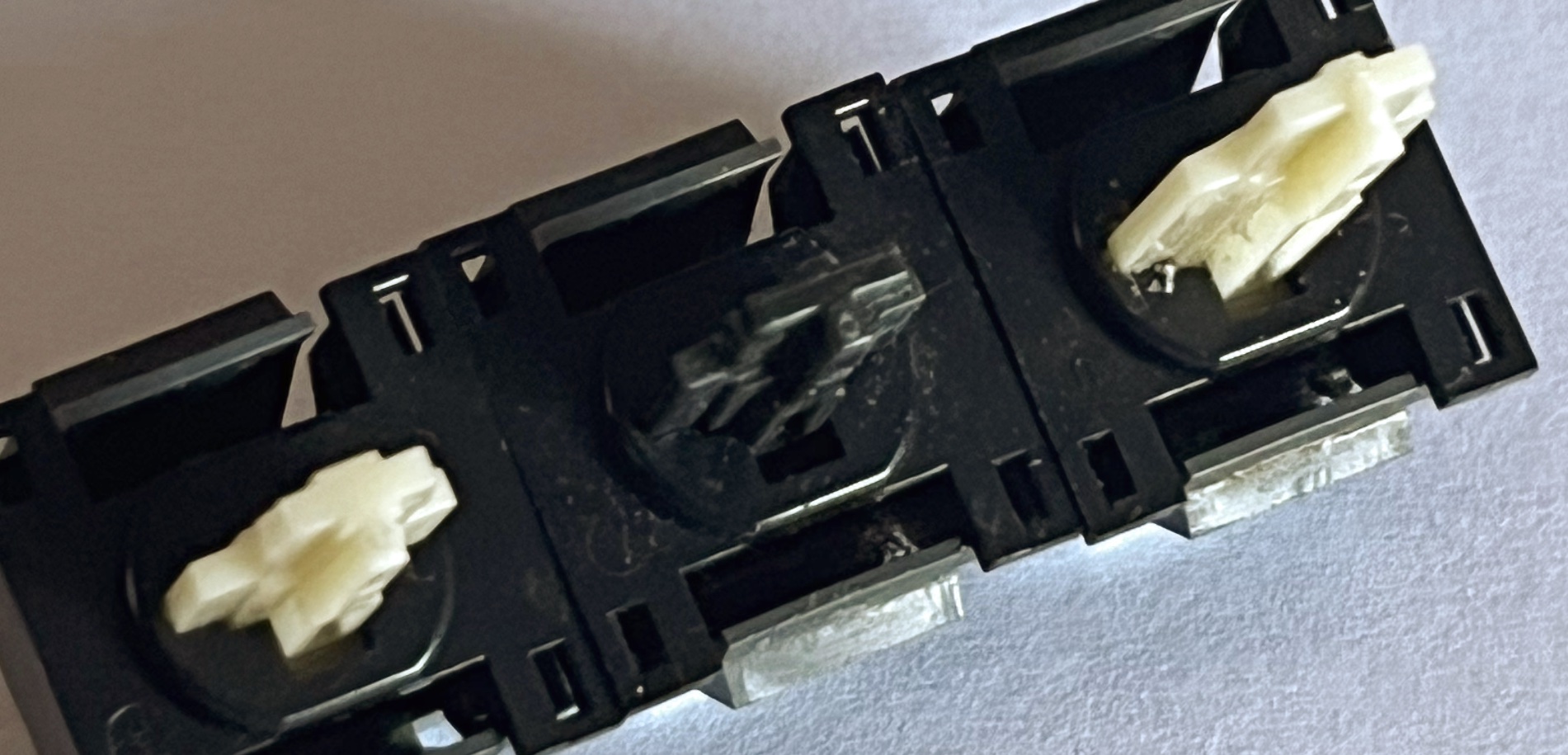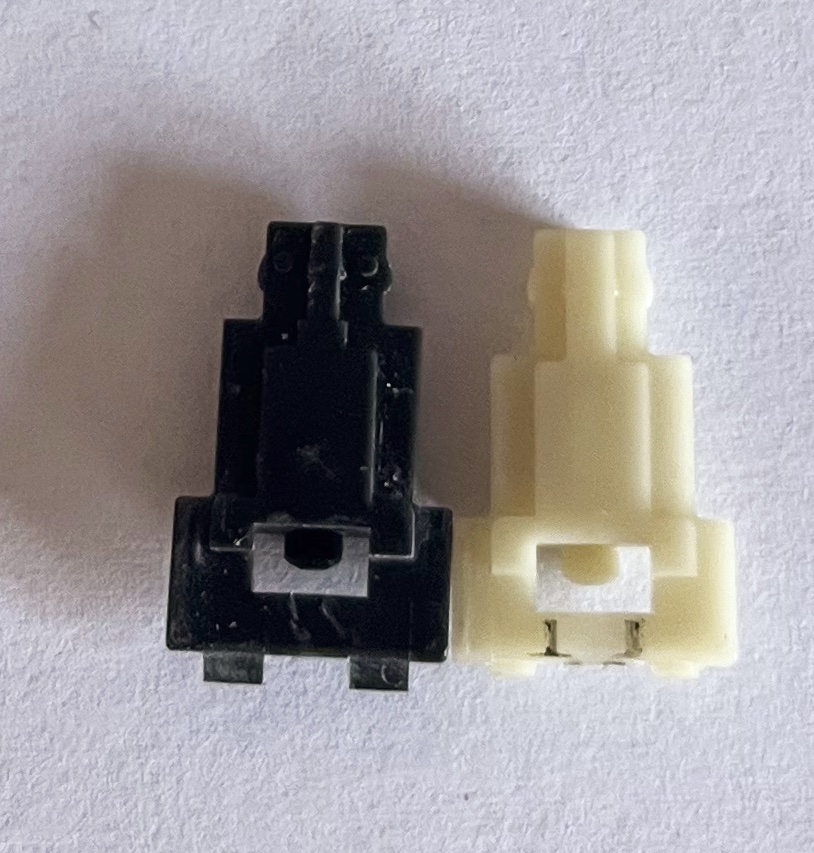This is an old revision of the document!
Alps SKCC Gray
| Alps SKCC Gray | |
 |
|
| Manufacturer | Alps Electric |
| Family | Alps SKCC series |
| Part Number | Unknown |
| Switch Type | Linear |
| Travel | 3.0mm |
| Sense method | Metal contact |
| Mount | Plate mount |
| Rated lifetime | 10 million cycles1) |
| Quoted operating force | Unknown, poss. 100gf |
Alps SKCC Gray is a short-throw linear switch in the Alps SKCC Series.
Characteristics
The switch follows the general characteristics of the SKCC family, consisting of an upper and lower housing, contact module, stem, and spring.
The stem, which is a dark-gray to black color2), is always lubricated and is likely made of a nylon blend3).
The switch travel is notably reduced; this is achieved by a lengthening of the posts at the bottom of the stem. This, coupled with its use as a service part for calculators with Alps AKC switches4) indicates that it was likely made to replace the older series of switch, which has an identical key travel.
Alps SKCC Gray, like all SKCC series switches, uses a contact module to register the keypress. This sits in the middle of the housing opposite the spring.
Additional Information
The switch was likely in production from 19795). No end date is known.
Interestingly, the mount used in SKCC Gray is not the same as either SKCC Cream or SKCC Tall Cream, although in the case of SKCC Tall Cream the mount is almost identical with the nubs on the cruciform being positioned differently but the dimensions of the cruciform itself is the same between both switches. While it could likely be possible to mount SKCC Gray caps on SKCC Tall Cream switches and vice versa, the nubs on the cruciform are positioned differently between the two switches and doing so is likely to stress the keycap mount and could damage the keycap. The unique mount of SKCC Gray is additional evidence for it serving as a replacement for AKC (spring bridge) switches.


